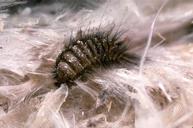Professional Carpet Beetle Control in Hedge End
At Carpet Beetle Hedge End, we are at hand to deal with all your Carpet Beetle problems 7 days a week. Pest Control Southampton are all fully qualified and trained to undertake all Carpet Beetle Infestations and Prevention throughout all Hedge End and Hampshire areas for both domestic and commercial properties.
You will find our team helpful and they will also offer you advice on any pest problem that you may have, we also have same day appointments, so if you find you have Carpet Beetles, just pick up the phone and give us a call and we can be out the same day to eradicate these pests.
We are not a large National Company, and our prices are very competitive as we save on our advertising and we reflect this back on the price Pest Control Southampton charge you, most of our work comes from customer referrals and repeat business.
Contact us on 02380 659992
Or Click below for a online Request a Quote
About Carpet Beetles
The beetles are fairly small, measuring 1.5 to 4mm in length. The body is strongly convex, rather like the ladybird beetle and is characterised by the pattern of yellow, black and whitish scales on the body.
Between 20 and 100 eggs are laid by the female during spring and early summer on furs, woollens and any dried materials of animal origin.
When the larvae hatch out, they are hairy and brown with three bunches of golden hairs on the abdomen. They normally reach a length of 4-5mm. They tend to avoid the light and, when disturbed, curl up into a ball.
The eggs hatch between 10 to 35 days depending on the temperature. The larvae can last at least a year depending on the quality of the food supply. The adult beetle lives from 7-41 days.
The adults appear in April, May and June and their resulting larvae hibernate during the following winter pupating during the latter part of February and March.
On emergence the adult beetles seek the light so they usually fly to the windows. They fly to light coloured flowers where they feed on nectar and pollen. After mating, the females enter houses during late summer and autumn and lay their eggs in birds’ nests in roof voids and other suitable places. The larvae feed on feathers and wool soiled with excrement.




